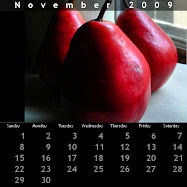
Brooks Jone s, Father of Summerfare, Is Dead at 73
s, Father of Summerfare, Is Dead at 73
By DOUGLAS MARTIN
Brooks Jones, a producer and director who rejected Broadway to devote himself to regional theater, including starting and directing Pepsico Summerfare at the State University of New York at Purchase, died on July 15 at his home in Westport, Conn. He was 73.The cause was heart failure, his sister, Gloria Jones Borden, said.The university provided 500 acres of lawns and gardens and four indoor theaters to Summerfare, and Pepsico contributed money (ultimately millions of dollars). But it was Mr. Jones who provided vision and direction for a 1980s summertime cultural happening that lasted a decade — and considerably longer in the memory of many visitors.He attracted major acts, from Henny Youngman to the Royal Hanneford Circus to the Feld Ballet, but it was his exuberant mix-and-match, something-for-everyone sensibility that defined the festival. Surprises could pop up anywhere. Here there was free outdoor opera; over there, a puppet show; mimes and stilt-walkers wandered among food booths and jazz groups.Several times, Mr. Jones staged an outdoor performance of Benjamin Britten’s “Noah’s Flood,” which featured the voice of God booming down from a cherry picker and a chorus of 800 local children dressed as animals. Visitors came from Westchester County, Connecticut, New York City and often far more distant points.With Barnumesque flourish, Mr. Jones called his creation an “acropolis of the arts” and “a little Lincoln Center.” His definition of a festival in an interview with The New York Times in 1984 was more to the point: “getting a lot of people together to create something that wouldn’t be there otherwise.”In 1962, Mr. Jones told The Times he did not want to produce plays on Broadway, the traditional definition of theatrical success. His ambition was to work in regional theater, which he thought could take more risks, involve communities, particularly young people, and reach standards of the highest level.In 1959, he helped establish the resident company at the McCarter Theater in Princeton, N.J., which grew to be one of the nation’s most respected. He started a successful resident company at the Cincinnati Playhouse in 1961. There were other stops, including the Long Wharf Theater in New Haven, before he started Summerfare in 1980.David Brooks Jones was born on Oct. 23, 1934, in Columbus, Ohio, and grew up in Jackson, Ohio. At Princeton University, from which he graduated in 1956, Mr. Jones was president of the Triangle Club, the student drama group.After two years in the United States Army, he produced and directed at the McCarter and sang folk songs professionally. In 1960, he recorded an album, “Jeremy’s Friends,” with Carole Mann and Alan Arkin, on the Warwick label. He became producer and director of a new resident company a t Playhouse in the Park in Cincinnati in 1962.Mr. Jones went to SUNY Purchase as the first artistic director of its Center for the Arts. When the university’s president first suggested a summer festival in the middle of a field in a town with the population of 1,000, Mr. Jones told The Times, he thought it was “a silly idea” that “didn’t make a whiff of sense.”Then the president, Michael Hammond, and Mr. Jones literally walked across the street and asked Pepsico’s chairman, Donald M. Kendall, for support. Mr. Kendall asked what it would cost.“I managed to blurt out ‘$225,000,’ ” Mr. Jones told The Times.Pepsico promised that amount and continued to increase its contributions. By the end of Summerfare in 1989, they totaled $7.8 million. Pepsico then pulled out, with a spokesman saying that the company had “taken it as far as we can go.”Mr. Jones is survived by his sister, who lives in Princeton.While he was still running Summerfare, Mr. Jones worked on an interactive television project for children. It gave children watching at home an opportunity to improvise responses when prompted by actors on the television screen, and was initially shown on 17 public television stations.Mr. Jones told The Times in 1978 that the goal was to make children more than passive observers. He called his project “the next best thing to outlawing television for anyone younger than 13.”
t Playhouse in the Park in Cincinnati in 1962.Mr. Jones went to SUNY Purchase as the first artistic director of its Center for the Arts. When the university’s president first suggested a summer festival in the middle of a field in a town with the population of 1,000, Mr. Jones told The Times, he thought it was “a silly idea” that “didn’t make a whiff of sense.”Then the president, Michael Hammond, and Mr. Jones literally walked across the street and asked Pepsico’s chairman, Donald M. Kendall, for support. Mr. Kendall asked what it would cost.“I managed to blurt out ‘$225,000,’ ” Mr. Jones told The Times.Pepsico promised that amount and continued to increase its contributions. By the end of Summerfare in 1989, they totaled $7.8 million. Pepsico then pulled out, with a spokesman saying that the company had “taken it as far as we can go.”Mr. Jones is survived by his sister, who lives in Princeton.While he was still running Summerfare, Mr. Jones worked on an interactive television project for children. It gave children watching at home an opportunity to improvise responses when prompted by actors on the television screen, and was initially shown on 17 public television stations.Mr. Jones told The Times in 1978 that the goal was to make children more than passive observers. He called his project “the next best thing to outlawing television for anyone younger than 13.”
 s, Father of Summerfare, Is Dead at 73
s, Father of Summerfare, Is Dead at 73By DOUGLAS MARTIN
Brooks Jones, a producer and director who rejected Broadway to devote himself to regional theater, including starting and directing Pepsico Summerfare at the State University of New York at Purchase, died on July 15 at his home in Westport, Conn. He was 73.The cause was heart failure, his sister, Gloria Jones Borden, said.The university provided 500 acres of lawns and gardens and four indoor theaters to Summerfare, and Pepsico contributed money (ultimately millions of dollars). But it was Mr. Jones who provided vision and direction for a 1980s summertime cultural happening that lasted a decade — and considerably longer in the memory of many visitors.He attracted major acts, from Henny Youngman to the Royal Hanneford Circus to the Feld Ballet, but it was his exuberant mix-and-match, something-for-everyone sensibility that defined the festival. Surprises could pop up anywhere. Here there was free outdoor opera; over there, a puppet show; mimes and stilt-walkers wandered among food booths and jazz groups.Several times, Mr. Jones staged an outdoor performance of Benjamin Britten’s “Noah’s Flood,” which featured the voice of God booming down from a cherry picker and a chorus of 800 local children dressed as animals. Visitors came from Westchester County, Connecticut, New York City and often far more distant points.With Barnumesque flourish, Mr. Jones called his creation an “acropolis of the arts” and “a little Lincoln Center.” His definition of a festival in an interview with The New York Times in 1984 was more to the point: “getting a lot of people together to create something that wouldn’t be there otherwise.”In 1962, Mr. Jones told The Times he did not want to produce plays on Broadway, the traditional definition of theatrical success. His ambition was to work in regional theater, which he thought could take more risks, involve communities, particularly young people, and reach standards of the highest level.In 1959, he helped establish the resident company at the McCarter Theater in Princeton, N.J., which grew to be one of the nation’s most respected. He started a successful resident company at the Cincinnati Playhouse in 1961. There were other stops, including the Long Wharf Theater in New Haven, before he started Summerfare in 1980.David Brooks Jones was born on Oct. 23, 1934, in Columbus, Ohio, and grew up in Jackson, Ohio. At Princeton University, from which he graduated in 1956, Mr. Jones was president of the Triangle Club, the student drama group.After two years in the United States Army, he produced and directed at the McCarter and sang folk songs professionally. In 1960, he recorded an album, “Jeremy’s Friends,” with Carole Mann and Alan Arkin, on the Warwick label. He became producer and director of a new resident company a
 t Playhouse in the Park in Cincinnati in 1962.Mr. Jones went to SUNY Purchase as the first artistic director of its Center for the Arts. When the university’s president first suggested a summer festival in the middle of a field in a town with the population of 1,000, Mr. Jones told The Times, he thought it was “a silly idea” that “didn’t make a whiff of sense.”Then the president, Michael Hammond, and Mr. Jones literally walked across the street and asked Pepsico’s chairman, Donald M. Kendall, for support. Mr. Kendall asked what it would cost.“I managed to blurt out ‘$225,000,’ ” Mr. Jones told The Times.Pepsico promised that amount and continued to increase its contributions. By the end of Summerfare in 1989, they totaled $7.8 million. Pepsico then pulled out, with a spokesman saying that the company had “taken it as far as we can go.”Mr. Jones is survived by his sister, who lives in Princeton.While he was still running Summerfare, Mr. Jones worked on an interactive television project for children. It gave children watching at home an opportunity to improvise responses when prompted by actors on the television screen, and was initially shown on 17 public television stations.Mr. Jones told The Times in 1978 that the goal was to make children more than passive observers. He called his project “the next best thing to outlawing television for anyone younger than 13.”
t Playhouse in the Park in Cincinnati in 1962.Mr. Jones went to SUNY Purchase as the first artistic director of its Center for the Arts. When the university’s president first suggested a summer festival in the middle of a field in a town with the population of 1,000, Mr. Jones told The Times, he thought it was “a silly idea” that “didn’t make a whiff of sense.”Then the president, Michael Hammond, and Mr. Jones literally walked across the street and asked Pepsico’s chairman, Donald M. Kendall, for support. Mr. Kendall asked what it would cost.“I managed to blurt out ‘$225,000,’ ” Mr. Jones told The Times.Pepsico promised that amount and continued to increase its contributions. By the end of Summerfare in 1989, they totaled $7.8 million. Pepsico then pulled out, with a spokesman saying that the company had “taken it as far as we can go.”Mr. Jones is survived by his sister, who lives in Princeton.While he was still running Summerfare, Mr. Jones worked on an interactive television project for children. It gave children watching at home an opportunity to improvise responses when prompted by actors on the television screen, and was initially shown on 17 public television stations.Mr. Jones told The Times in 1978 that the goal was to make children more than passive observers. He called his project “the next best thing to outlawing television for anyone younger than 13.”



















No comments:
Post a Comment